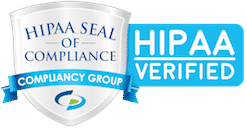Emme is a HIPAA-compliant company and your data privacy is our priority. Read more here.
Emme’s Guide to Cervical Health
January is Cervical Health Awareness Month! A good starting point for this month is to make sure you have your next annual check up with your doctor booked. A key part of well-rounded healthcare is seeing your OB/GYN or physician annually so that early detection and prevention can be a part of your healthcare routine.
What is the cervix?
The cervix connects the vagina (birth canal) to the upper part of the uterus. The uterus (or womb) is where a baby grows during pregnancy.
Anatomy of the female reproductive system
What causes cervical cancer?
All people with ovaries are at risk for cervical cancer. Human Papillomavirus (HPV) is the main cause of cervical cancer. HPV is a common virus that is passed from one person to another during sex. When cancer starts in the cervix, it is called cervical cancer. High risk HPV types can lead to cervical cancer and low risk types can cause genital warts.
What can I do to reduce the risk of cervical cancer?
Get screened regularly. Two tests help prevent cervical cancer or find it early — the Pap test (Pap smear) and the HPV (Human Papillomavirus) test. Cervical cancer is one of the most preventable cancers today. Early detection is the key. Starting at age 21, people with ovaries should be screened with a Pap test. That at age 30, those people should be co-tested with both a Pap test and a HPV test.
Screening options:
- The Pap test looks for precancers, which are cell changes on the cervix that might become cervical cancer if they are not treated appropriately.
- The HPV (Human Papillomavirus) test looks for the virus that can cause these cell changes.
Illustration of speculum, used in a pelvic exam during which the pap smear occurs
Talk to your doctor about the vaccine
Cervical cancer is linked to infection with HPV (Human Papillomavirus). The HPV vaccine protects against the types of HPV that cause about 90% of cervical cancers. The CDC recommends all people get the HPV vaccine at age 11 or 12 as the vaccine produces a stronger immune response when taken during the preteen years.
...
Sources:
